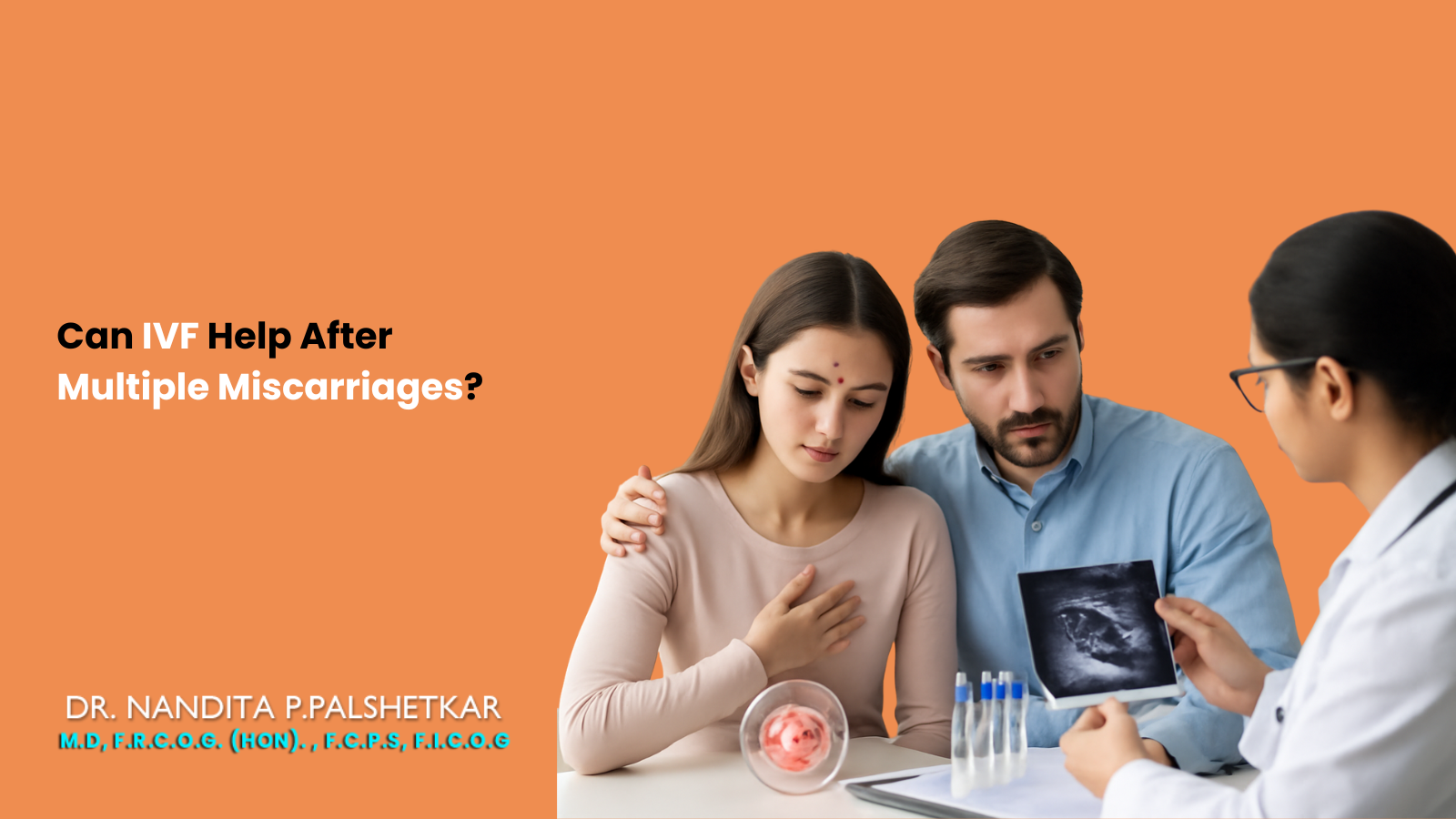

E-Brochure Download Now!

Experiencing more than one miscarriage can be emotionally overwhelming and leave couples feeling uncertain about parenthood. While many women go on to have successful pregnancies after recurrent loss, the journey often requires guidance and support. Fertility treatments like IVF have offered renewed hope for countless couples by identifying underlying issues and improving the chances of a healthy pregnancy.
Find out how IVF can support your journey and increase your likelihood of achieving a healthy and lasting pregnancy.
Recurrent miscarriage is typically defined as having two or more consecutive pregnancy losses. While a single miscarriage is common, repeated losses may signal underlying health or fertility issues that need investigation.
Common causes include:
These losses can affect both fertility and emotional well-being. Understanding the causes and seeking specialised care is essential for finding a solution.
IVF after miscarriage can provide new hope for couples who’ve experienced repeated pregnancy losses. By taking fertilisation outside the body and into a lab, IVF allows fertility specialists to address potential issues more effectively.
Here’s how IVF helps:
For many couples, IVF offers the best shot at a successful pregnancy after recurrent miscarriage. It combines advanced technology with personalised care to address problems often missed in natural conception.
Here’s why IVF works:
IVF gives couples more control over their fertility journey, with a dedicated team guiding them every step of the way.
The emotional strain of infertility after a miscarriage can be overwhelming. IVF, while offering hope, can also bring stress and uncertainty. That’s why emotional well-being is an essential part of your fertility after miscarriage.
At our clinic, we encourage:
While every case is unique, IVF success rate after miscarriage is a reality for many couples. Studies suggest that with the help of embryo screening and tailored protocols, pregnancy outcomes can improve significantly.
Factors that influence IVF success include:
In women under 35 using PGT-tested embryos, success rates can reach 60–70% per cycle. Though not guaranteed, IVF offers a significantly improved chance of carrying a healthy pregnancy to term compared to natural conception after repeated losses.
Following IVF, it's essential to give your body the care it needs. After embryo transfer, the fertility specialist will provide specific guidance to ensure the best outcome.
Key aspects of aftercare include:
Multiple miscarriages can be emotionally and physically draining, but IVF offers renewed hope for couples longing for a healthy pregnancy. Thanks to advanced reproductive technologies and compassionate care, many couples successfully conceive after recurrent losses, experiencing the joy of parenthood.
If you've faced repeated miscarriages, IVF could be the key to realising your dream of having a family. Consult Dr Nandita Palshetkar, a renowned fertility expert, to explore personalised treatment options and take the first step toward a hopeful future.
Book an appointment now!